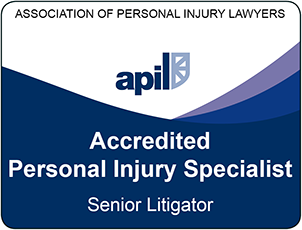Cauda Equina Claims against GPs are rarely straightforward and there are many difficulties that can occur.
Back pain is a common problem in general practice. Fortunately, the large majority of back pain resolves, or largely resolves, over a few weeks. However, frequently such problems recur. GPs have limited time to spend with the patient and limited therapeutic options. They tend to take a fairly practical approach to the problem, concentrating on the practical options open to them. Few GPs provide physical treatments such as manipulation or acupuncture.
Back Pain & Diagnosis
When consulting with a patient with back pain, a reasonably competent general practitioner should perform an adequate assessment. The GP should establish the site of the pain, its duration, periodicity, any aggravating or relieving factors and any associated symptoms such as leg weakness and numbness. Inquiry should be made about leg symptoms, followed by an adequate examination.
The nature of the examination would depend upon the history. There should be inspection of the back as well as palpation of the painful area and some assessment of movement of the lumbar spine. If there is also a complaint of leg pain, sensory symptoms in the leg or leg weakness, a reasonably competent general practitioner should perform an examination of the legs. This would involve straight leg raising as well as some neurological examination to include some assessment of reflexes and power.
Severe Pain
If the leg symptoms were severe, there should also be questioning about perineal problems including bladder and bowel function in case of the rare but potentially very disabling problem of cauda equina compression.
Frequently, it is at the first appointment that the GP prescribes simple analgesics and/or a non-steroidal anti-inflammatory medication although this may be affected by the results of medications tried at home already. If the problem persists, or medications have already been tried to no avail, then a competent GP may go on to arrange some further investigation such as an MRI scan or x-rays of the lumbar spine. Blood tests might also be arranged. If medication has not been found to be helpful then referral to a physiotherapist is frequently arranged.
Practical options open to the GP are providing methods of pain relief, simple advice, certification for work and referral if necessary. Methods of pain relief include simple analgesic medication (e.g. paracetamol, coproxamol, codydramol, cocodamol, dihydrocodeine, codeine), non-steroidal anti-inflammatory medication (e.g. ibuprofen, diclofenac, piroxicam, naproxen), acupuncture and a TENS machine. GPs normally give simple advice about rest, avoiding aggravating factors and appropriate exercises. Sickness certification is a major role fulfilled by GPs.
Specialist Referral
Grounds for specialist referral would normally be persistent severe pain and disability or concerning neurological abnormalities. The latter could suggest significant pressure on nerves which may have an irreversible effect.
How Can Timms Help?
For more information on Cauda Equina claims, please contact the team on freephone 0800 011 6666 or via email at legal@timms-law.com.
Results that speak for themselves














